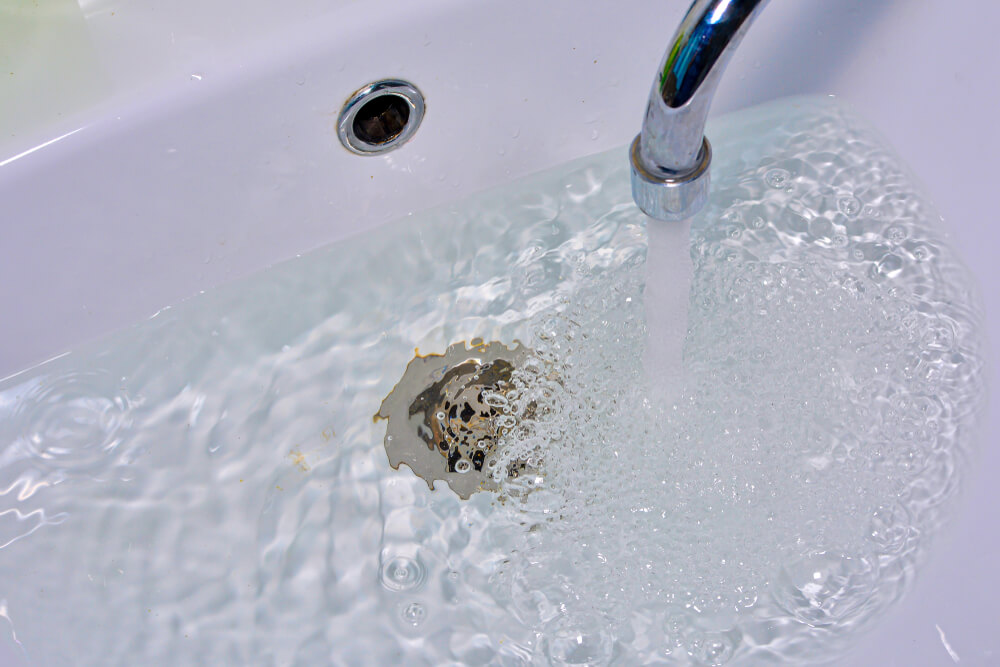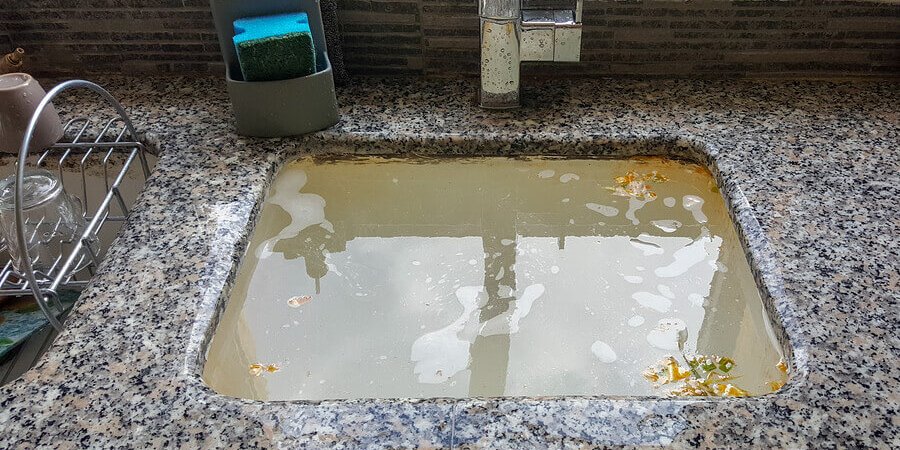They are making several great pointers related to Solved! How to Fix a Slow Sink Drain in general in this content just below.

Intro
We have actually all existed: You're brushing your teeth or washing your hands, and you discover the water pooling in the sink. As opposed to promptly swirling down the drain, it lingers, transforming your once-refreshing morning routine right into a miniature overload scene. A slow-draining sink isn't just bothersome; it's usually an indication of bigger pipes concerns lurking beneath the surface. The good news is that the majority of slow-draining sinks can be repaired with a little know-how, a couple of standard tools, and some persistence. All set to tackle this task head-on? Allow's roll up our sleeves and dive right in.
Comprehending the Reasons For a Slow-Draining Sink
Before you begin poking around in your pipes, it assists to recognize what may be triggering the stagnation. Comprehending the root cause makes it much easier to choose the appropriate repair.
Usual Offenders Behind Slow Drainage
So, what's blocking things up? Generally, it's a combination of day-to-day particles-- assume hair, soap scum, toothpaste residue, and leftover food particles. In time, these tiny bits build up and hold on to the pipeline wall surfaces, gradually narrowing the passage and making it harder for water to go through. Sometimes, mineral deposits from tough water can also contribute to the substance, creating the ideal tornado for persistent obstructions.
When is it Time to Do Something About It?
If you see the water draining pipes slower than normal, it's a great idea to interfere sooner instead of later. Waiting as well long can bring about complete obstructions, undesirable smells, and even pipe damage. If the water takes more than a couple of secs to clean out after turning off the faucet, consider it a warning and prepare to put on your DIY hat.
Tools and Materials You'll Require
The right devices make all the difference. Luckily, you won't require a completely stocked plumber's van to get the job done.
Crucial Tools for DIY Services
A bettor is your best beginning point. A little, sink-sized bettor develops suction that can remove minor clogs. For more consistent clogs, a drainpipe serpent (sometimes called a plumbing professional's auger) works wonders. A set of handwear covers, a flashlight, and possibly a set of protective goggles are also convenient.
Suggested Cleaning Solutions
Moderate dish soap and warm water can help break down oily build-up. A blend of cooking soda and vinegar is a reliable natural home remedy, and chemical cleaners use a more eco-friendly technique. Maintain chemical drain cleansers as a last hope, as they can be rough on your pipelines.
Security First: Precautions and Prep work
Before you launch into unclogging setting, consider safety. You're taking care of possibly unclean water and debris, so slip on a set of gloves. If you're utilizing chemical cleaners, ensure the room is well-ventilated and follow the directions on the label.
Safety Gear and Work Space Configuration
Set some old towels or rags around the sink area to catch dashes. Eliminate any things that could enter your means, like soap dispensers or tooth brush holders. Make certain you have great lights-- get hold of a flashlight if needed.
Step-by-Step Guide to Repairing a Slow-Draining Sink
Now, allow's enter the nitty-gritty. This step-by-step procedure will assist you through basic techniques to recover your sink's water drainage.
Step 1: Eliminate and Tidy the Stopper
Frequently, the stopper (that tiny plug you push down to block water) is the very first culprit. Remove it very carefully and clean off any type of hair or crud trapped around its base. Rinse it completely before putting it back in place.
Step 2: Utilize a Bettor to Displace Debris
Got that plunger ready? Position it over the drain and give it a couple of firm pumps. The idea is to create suction that can loosen any kind of clog. If you see littles particles floating up, you're on the appropriate track.
Step 3: Try a Drain Snake or Cable Hanger
If the plunger doesn't work, it's time to bring out the drainpipe serpent. Delicately feed it right into the drainpipe and twist as you go. You could feel some resistance-- that's likely the obstruction. Keep twisting and drawing up until you remove the blockage. If you do not have a drain serpent, a straightened cord hanger can operate in a pinch.
Tip 4: Apply a Do It Yourself Drainpipe Cleaner
An all-natural cleaner made from baking soda and vinegar can break down residual gunk. Put half a cup of baking soft drink right into the drain, complied with by half a cup of vinegar. Let it fizz for about 15 minutes, then flush with hot water. This chemical reaction typically does marvels for small obstructions.
Tip 5: Rebuild and Test the Sink
Put every little thing back with each other and run the faucet. Does the water now swirl down the tubes at a decent speed? If yes, provide yourself a pat on the back. Otherwise, do not misery-- there are still a couple of more tricks up your sleeve.
Alternative Methods for Stubborn Clogs
Not all blockages are created equal. If your sink still declines to cooperate, think about these alternate remedies.
Baking Soda and Vinegar Method
We already touched on this, yet it's worth noting once more. This mild, green approach is much safer than chemical cleansers and often fairly efficient.
Enzymatic Drainpipe Cleaners
Enzyme-based cleaners make use of all-natural microorganisms to digest organic matter. They're an exceptional option if you're wanting to stay clear of extreme chemicals. Simply keep in mind, they may take a bit longer to function their magic.
Chemical Drain Cleansers: Advantages And Disadvantages
Chemical cleansers can blast through hard clogs quickly, but they're not without disadvantages. They can produce heat and fumes, damages pipes if utilized exceedingly, and position environmental dangers. Utilize them moderately, and constantly follow the instructions carefully.
Safety Nets to Maintain Your Sink Flowing
Prevention is the most effective cure. By taking on a few straightforward behaviors, you can keep your sink from reducing in the first place.
Regular Cleaning Habits
Wipe down the sink container and component location on a regular basis. Remove hair or food particles prior to they have a possibility to wash down the drain.
Avoiding Damaging Compounds Down The Tubes
Think twice before unloading coffee grounds, oil, or fibrous veggie scraps down the sink. These wrongdoers hold on to pipe walls, developing blockages with time.
Routine Maintenance Checks
Set up a fast monthly evaluation. Run hot water through the sink for a couple of mins, paying attention to the circulation. If it seems sluggish, act quick prior to it comes to be a full-blown obstruction.
When to Call a Specialist Plumber
Occasionally, no matter exactly how tough you try, that block simply will not move. That's when it's time to generate the pros.
Signs That Show an Extra Severe Issue
If your sink drains gradually despite numerous attempts, or if you notice water backing up in other components (like your shower or bathroom), you might have a more major plumbing problem lurking deeper in the system.
Stabilizing Do It Yourself Efforts with Specialist Aid
While DIY can conserve you money and offer a feeling of accomplishment, there's no pity in calling an expert. A specialist plumbing professional can examine your entire plumbing arrangement, ensuring there's no underlying damages or long-term issue that can cost you more later on.
Comparing Costs and Long-Term Solutions
Before choosing, consider the big picture. A cheap, quick fix may fix the problem temporarily, yet purchasing a more permanent option could conserve you cash and anxiety over time.
Considering the Costs of Do It Yourself vs. Professional Repairs
DIY solutions commonly cost little bit greater than the price of a bettor or a container of cooking soft drink. Professional services, on the other hand, featured a price tag however may protect against repeated concerns and costly repairs later on.
Investing in Quality Fixtures and Upgrades
If your sink's layout contributes to constant blockages, it might be worth updating to higher-quality components or changing the plumbing format. Consider this a financial investment in your home's capability and comfort.
Conclusion
A slow-draining sink can feel like a small inflammation, however it's frequently an indication that your plumbing needs a little tender loving care. By understanding the origin, using the right devices and techniques, and committing to simple safety nets, you can keep your sink flowing openly. And when all else fails, never think twice to call a professional-- your home's pipes is worth the financial investment in care and maintenance.
Three Common Ways to Fix a Slow Drain
Baking Soda Method
Boil a full pot of water. Measure out cup of baking soda and pour it down the drain. Then take cup of the magical cleansing substance known as white vinegar and drop that down there too. Allow the mixture to fizz in the drain for five minutes as the vinegar and baking soda combine. Now dump in that whole pot of boiling water. This combination of cleaning substances should clear out anything that is causing your sink to drain slowly. If it doesn t...
Zip-It
If the baking soda method doesn t clear out your drain, it may be because a significant amount of hair and/or other debris has collected there and you need to remove it. Purchase a Zip-It tool at any home improvement or hardware store and insert it into your drain. It will catch any collected hair or debris that s blocking the flow of water. Pull it out. If it s got a big clump of hair, etc. on the end, you ve probably got your culprit.
Drain Cleaner
If these methods don t work, there is the standard drain cleaner that you can also buy in a hardware store or even your local grocery store. It s better if you can use a household solution, but these drain cleaners often work in a pinch. They re very simple to use. You generally just dump them in your drain and wait. If even this method is not effective, it may be time to call the plumber.
https://www.mrrooter.com/oneida/about-us/blog/2017/july/three-common-ways-to-fix-a-slow-drain/

I discovered that piece of writing on Solved! How to Fix a Slow Sink Drain when doing a search on the search engines. Sharing is good. Helping others is fun. I take joy in your readership.
Call Today